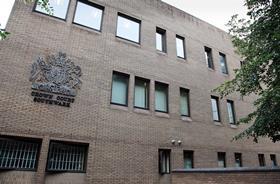A man convicted of an offence under section 5 of the Public Order Act 1986 for burning a Qur’an outside the Turkish consulate has succeeded in his appeal against conviction.

Sitting in Southwark Crown court, Mr Justice Bennathan with magistrates Guest and Graves found Hamit Coskun’s conduct was not disorderly or within the hearing or sight of a person likely to be caused harassment, alarm or distress.
Coskun was convicted earlier this year of using threatening or abusive words of behaviour or disorderly behaviour within the sight of a person likely to be caused harassment, alarm or distress. He was fined £240 plus a £96 victim surcharge. Coskun, who sought asylum in the UK in 2022 and then applied for refugee status, travelled to the Turkish consulate in London with a copy of the Qur’an which he then set on fire while shouting.
A man from a nearby building chased Coskun into the road while brandishing a knife. When Coskun fell, he kicked and spat at him. When police arrived Coskun said he was exercising his democratic right to protest by setting fire to the religious book. His conviction was described as a ‘a form of modern blasphemy law’ by the National Secular Society.
Following the day-long appeal, the judge said: ‘There is no offence of blasphemy in our law. Burning a Koran [sic] may be an act that many Muslims find desperately upsetting and offensive. The criminal law, however, is not a mechanism that seeks to avoid people being upset, even grievously upset. The right to freedom of expression, if it is a right worth having, must include the right to express views that offend, shock or disturb.'
Read more
The judgment noted that Coskun’s conduct was not aimed at one person, Coskun was alone and his ‘protest was of short duration, perhaps two or three minutes’ during the day. It added that the reaction of people present was not ‘determinative’.
Allowing the appeal, the judge said: ‘It follows from our consideration of the evidence that the prosecution have not succeeded in making us sure either that the defendant’s conduct can properly be found to be disorderly, or that it was within the hearing or sight of a person likely to be caused harassment, alarm or distress thereby.’
National Secular Society chief executive Stephen Evans welcomed the judgment as ‘an important victory for freedom of expression’. He added: ‘The decision reaffirms the vital principle that free speech protects the right to offend, shock, or disturb – even when it challenges deeply held religious beliefs. England and Wales rightly abolished its blasphemy laws more than a decade ago. This ruling helps ensure they are not reintroduced by stealth under the guise of public order, and that our commitment to free speech remains strong.’


























